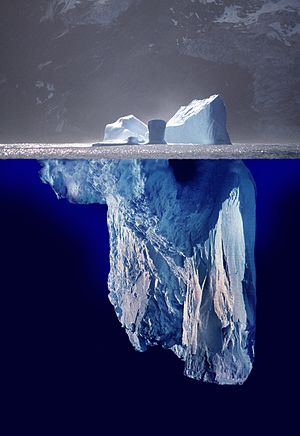 Article display preview: Article display preview: | This is a draft of a potential Signpost article, and should not be interpreted as a finished piece. Its content is subject to review by the editorial team and ultimately by JPxG, the editor in chief. Please do not link to this draft as it is unfinished and the URL will change upon publication. If you would like to contribute and are familiar with the requirements of a Signpost article, feel free to be bold in making improvements!
|
On Editing Wikisource
For reasons now unclear, I decided to make my first edit to Wikisource in early July of last year. Clearly, I didn't find it appealing at the time, as I made two smallish edits and returned to Wikipedia. However, this January I skulked back with a project in mind: add more poems by the romantic-era American poet William Cullen Bryant. I uploaded a scanned version of one of his books from the Internet Archive (therby creating an "Index" page" at Wikisource), and proofread the pages of random poem. Poetical works of William Cullen Bryant proved a difficult first project: it was a collection of poems, which inevitably needed complex formatting, but it also had images which had to be extracted (in my case, poorly extracted) from the scan. After proofreading the pages of my poem, I boldly created a mainspace page to house the poem, with the text being transcluded from the proofread pages to the mainspace to form one cohesive, digitized whole. After eventually figuring out "section transclusion", I happily added the poem to the list of New Texts, not realizing that I had mis-transcluded the poem and an entire page was missing! Although the technical help pages were confusing at times, I found experienced Wikisource users very helpful and patient. When asked for comment, WeatherWriter (talk · contribs) agreed that getting started was difficult:
Getting started on Wikisource was so much different than getting started on any other Wikimedia project. Actually, I struggled to even really learn how to get started. Unlike Wikipedia, there was no “learn to edit” style of buttons to click. They just have a “Help” button, which then takes you to a very short beginners guide. In terms of getting started, it probably has one of the worst layouts for new editors of any project. After that, I discovered you actually need gadgets on, especially for new editors. Every pages has a “header” for basic information. However, only going into your preferences and turning on specific gadgets allow it to be automatically generated. So my first ever page was actually a weird copy/paste from an existing page, rather than a guided creation.
[...]
To conclude, Wikisource is a major perk for weather-related articles on Wikipedia and I would love for every editor on weather-related articles to use it, but honestly, the guide to newcomers needs a major revamp (maybe similar to have Wikimedia Commons’ newcomer process works) before I would personally sent [sic] a new editor there.
However, WeatherWriter was including public domain content from webpages, while I was using scanned books, so we were entirely different editing spheres.
I continued proofreading pages of Poetical works of William Cullen Bryant through January, while dabbling in a few other projects, and participating a little in February's "Proofread of the Month".
I found my current project in mid-February: another (shorter) collection of poems by the Australian poet Adam Lindsay Gordon. I also started "Florula Mortolensis", a list and description of plants found at La Mortola around 1905. If that sounds oddly specific, it's because it is. But it contains some handy information that I suspect can by used to expand a few of our own articles.
This leads me to the use of Wikisource. Here's what WeatherWriter had to say:
Besides getting started, the process is fairly simple and it actually easier than creating English Wikipedia articles. As an editor who contributes almost entirely into weather-related articles, it is a huge perk to be able to have Wikisource articles. For any U.S.-weather event, the primary source is always the United States government, specifically the National Oceanic and Atmospheric Administration. Since everything U.S. government publishes is in the public domain, it can also be added to Wikisource. So now, weather-related articles can have links for readers to a Wikisource-version of the primary U.S. government sources for tornadoes, hurricanes, winter storms, floods, ect…
Wikisource is a library of free texts (which are hard to count, due to the use and misuse of subpages, and technicalities of what counts as a discrete "text"), including encyclopedias, plays, and novels. There's a considerable amount of work to do, and vandalism is rare. I've enjoyed contributing to Wikisource, as much or maybe more than I enjoy editing Wikipedia—and I plan to continue contributing for the foreseeable future.




Discuss this story